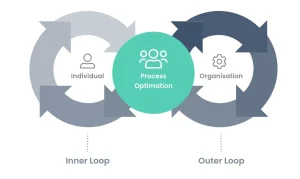When it comes to maintaining optimal oral health, daily brushing and flossing are fundamental. However, even with the most dedicated routine, some areas in your mouth may still harbor plaque or tartar, leading to potential issues like gum disease or tooth decay. That’s where professional teeth cleaning comes into play, offering a thorough, deep clean that goes beyond what at-home care can achieve. But what exactly makes professional teeth cleaning so important, and how does it contribute to long-term dental health?
For more information about the services offered at Amazing Smiles Orthodontics, including Invisalign treatments, you can visit https://www.amazingsmilesorthodontist.com/content/orthodontics-for-adults.
The Need for Professional Teeth Cleaning: Protecting Your Smile
Regular professional teeth cleaning is not just a cosmetic procedure; it’s a critical part of oral health care. Plaque, a sticky film of bacteria, continuously builds up on teeth. If not properly removed, plaque can harden into tartar, leading to various oral health problems. The need for professional teeth cleaning arises from its ability to remove these harmful substances from areas that brushing and flossing can’t reach. This process helps in preventing:
- Gum Disease: Untreated plaque buildup can lead to gingivitis or periodontitis, both of which are serious gum conditions.
- Tooth Decay: When tartar accumulates, it can erode enamel, causing cavities and leading to potential tooth loss.
- Bad Breath: Bacteria trapped in plaque can cause persistent bad breath, which is often resistant to at-home solutions.
By addressing these issues early, professional cleanings help keep your smile both healthy and radiant, and the need for additional, more invasive treatments is minimized.
Types of Teeth Cleaning: Tailored to Your Oral Health Needs
There are various types of teeth cleaning procedures available, each designed to cater to specific oral health needs. Not every cleaning is the same, and a dentist will assess your oral condition to recommend the appropriate type. Here are the common types of teeth cleaning:
- Prophylaxis Cleaning
This is the standard teeth cleaning procedure and is typically recommended for those with generally healthy teeth and gums. It focuses on removing plaque and tartar from the surfaces of teeth and gum line, ensuring the prevention of potential oral health issues. - Scaling and Root Planing (Deep Cleaning)
For individuals suffering from gum disease, a more intensive procedure is required. Scaling involves removing tartar from below the gum line, while root planing smooths the roots of teeth, making it harder for bacteria to attach and grow. - Gross Debridement
If it’s been a while since your last professional cleaning, a gross debridement might be necessary. This cleaning removes a significant buildup of plaque and tartar to allow for further examination of your teeth. - Periodontal Maintenance
Following treatment for gum disease, regular periodontal maintenance cleanings are necessary to ensure that the disease does not return. These cleanings are deeper and more frequent than standard prophylaxis cleanings, focusing on keeping your gums healthy.
Each type of cleaning plays a crucial role in maintaining oral health, tailored to the unique condition of each patient.
Stages of Professional Teeth Cleaning: Step-by-Step Care for Optimal Results
Professional teeth cleaning is a multi-step process that ensures thorough cleaning and examination of the entire mouth. The stages of professional teeth cleaning typically include:
- Examination
Before starting the cleaning, a dentist or dental hygienist will carefully examine your teeth and gums. This initial step helps in identifying any areas of concern, such as signs of gum disease or cavities. - Plaque and Tartar Removal
Using special tools, the dentist will remove plaque and tartar from around the gum line and between the teeth. This process, known as scaling, is the most crucial part of the cleaning, as tartar can only be removed with professional equipment. - Polishing
After the removal of plaque and tartar, the teeth are polished with a gritty toothpaste-like substance. This polishing helps to remove surface stains and smooths the tooth surface, making it harder for plaque to accumulate. - Flossing
A deep, professional flossing removes any remaining debris between the teeth, ensuring a thorough clean. Flossing also helps to check for any potential gum issues. - Fluoride Treatment
The final step is often a fluoride treatment. This protective layer helps to strengthen the enamel and protect your teeth from cavities for several months after the cleaning.
Benefits of Professional Teeth Cleaning: More Than Just a Sparkling Smile
While the immediate result of professional teeth cleaning is a brighter, cleaner smile, the long-term benefits extend far beyond aesthetics. Regular cleanings are a preventative measure that significantly enhances your oral health and overall well-being. Here are some key benefits:
- Prevention of Serious Dental Issues
Early detection is crucial in preventing serious dental conditions like gum disease and tooth decay. Regular cleanings allow your dentist to spot potential problems before they escalate, saving you from more invasive and expensive treatments down the line. - Boosted Overall Health
Your oral health is closely linked to your overall health. Studies have shown that poor oral hygiene can contribute to systemic issues, including heart disease, diabetes, and stroke. By maintaining good oral hygiene through regular professional teeth cleanings, you’re actively reducing the risk of these serious health conditions. - Improved Confidence
A clean, healthy smile can greatly boost your self-esteem. Stained or damaged teeth may make you feel self-conscious, but regular cleaning sessions can help restore your confidence by keeping your teeth bright and healthy. - Cost-Effective
Investing in regular cleanings can save you money in the long run. Preventative care reduces the likelihood of costly treatments such as fillings, crowns, or gum disease treatments. Catching issues early means fewer invasive and expensive procedures later on. - Customized Oral Care Advice
During a professional cleaning, your dentist or hygienist can provide tailored advice on how to improve your daily oral hygiene routine. Whether it’s recommending a specific toothpaste, flossing technique, or dental tool, these tips can be invaluable in maintaining optimal oral health between cleanings.
How Often Should You Get Professional Teeth Cleaning?
The general recommendation for professional teeth cleaning is twice a year, or every six months. However, the frequency may vary depending on your individual oral health needs. For those with excellent oral hygiene and low risk of dental issues, one cleaning per year may suffice. Conversely, individuals with a history of gum disease, frequent cavities, or other dental problems may need cleanings every three to four months.
Your dentist will assess your oral health and recommend a cleaning schedule that suits your specific needs, ensuring the best care for your teeth and gums.
Choosing the Right Dental Practice for Professional Teeth Cleaning
Selecting the right dental clinic for your professional teeth cleaning is crucial for receiving top-notch care. Look for practices that use the latest technology and tools, ensuring a thorough and comfortable cleaning experience. A welcoming, patient-centered approach can also make a significant difference in your overall experience.
At Amazing Smiles Orthodontics, for example, they combine cutting-edge equipment like 3D X-rays and intraoral scanners with a patient-focused approach to provide a comprehensive, personalized dental experience. The practice, led by Dr. Azariy Yusupov, emphasizes quality care and offers a spa-like environment that makes patients feel comfortable during their visits.
Professional teeth cleaning is an essential part of maintaining oral health and boosting confidence. Regular cleanings help prevent issues like gum disease and cavities. However, these services can be expensive without insurance. For those without coverage, exploring options for dental insurance for uninsured individuals can help manage costs and ensure you receive the necessary care to keep your smile healthy and bright.
Additionally, if you’re undergoing orthodontic treatment, it’s especially important to maintain your professional cleaning schedule. Devices like braces and aligners can make it harder to clean your teeth properly, leading to increased plaque buildup. Practices like Amazing Smiles Orthodontics offer specialized care for patients with braces, ensuring that your orthodontic treatment and overall oral health remain on track.
In conclusion, regular professional teeth cleaning is essential for maintaining not only a beautiful smile but also optimal oral and overall health. Whether you need a standard cleaning or more specialized care like scaling and root planing, professional cleanings provide the foundation for long-term dental health. Keep your teeth and gums in top condition by booking your next appointment with a trusted dental clinic, and enjoy the benefits of a clean, healthy smile for years to come.











